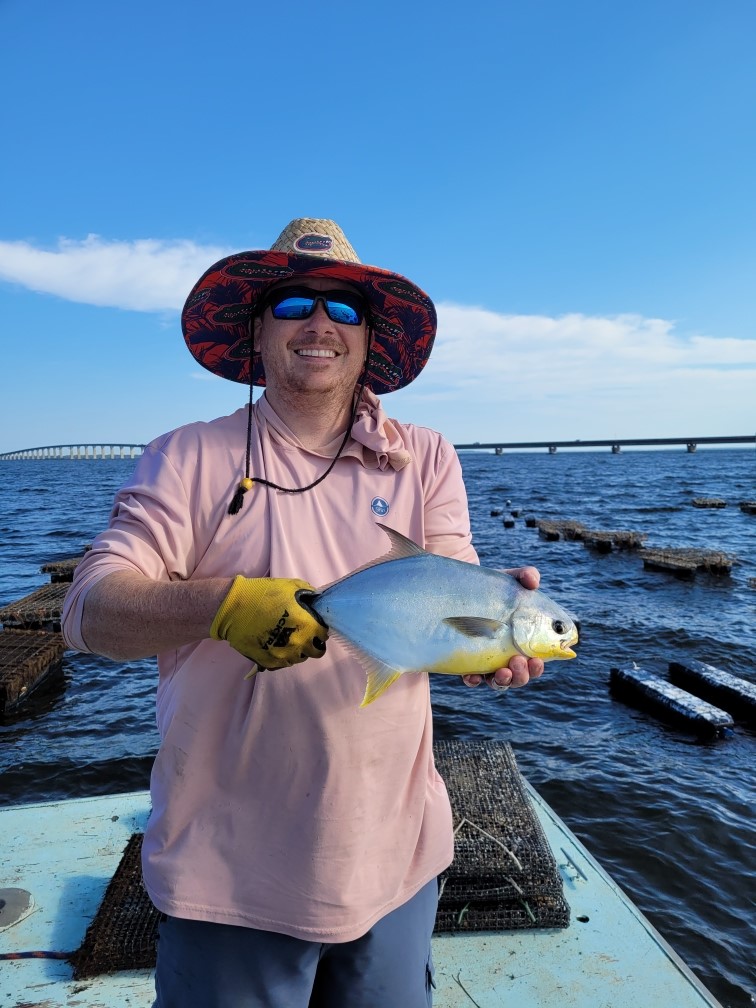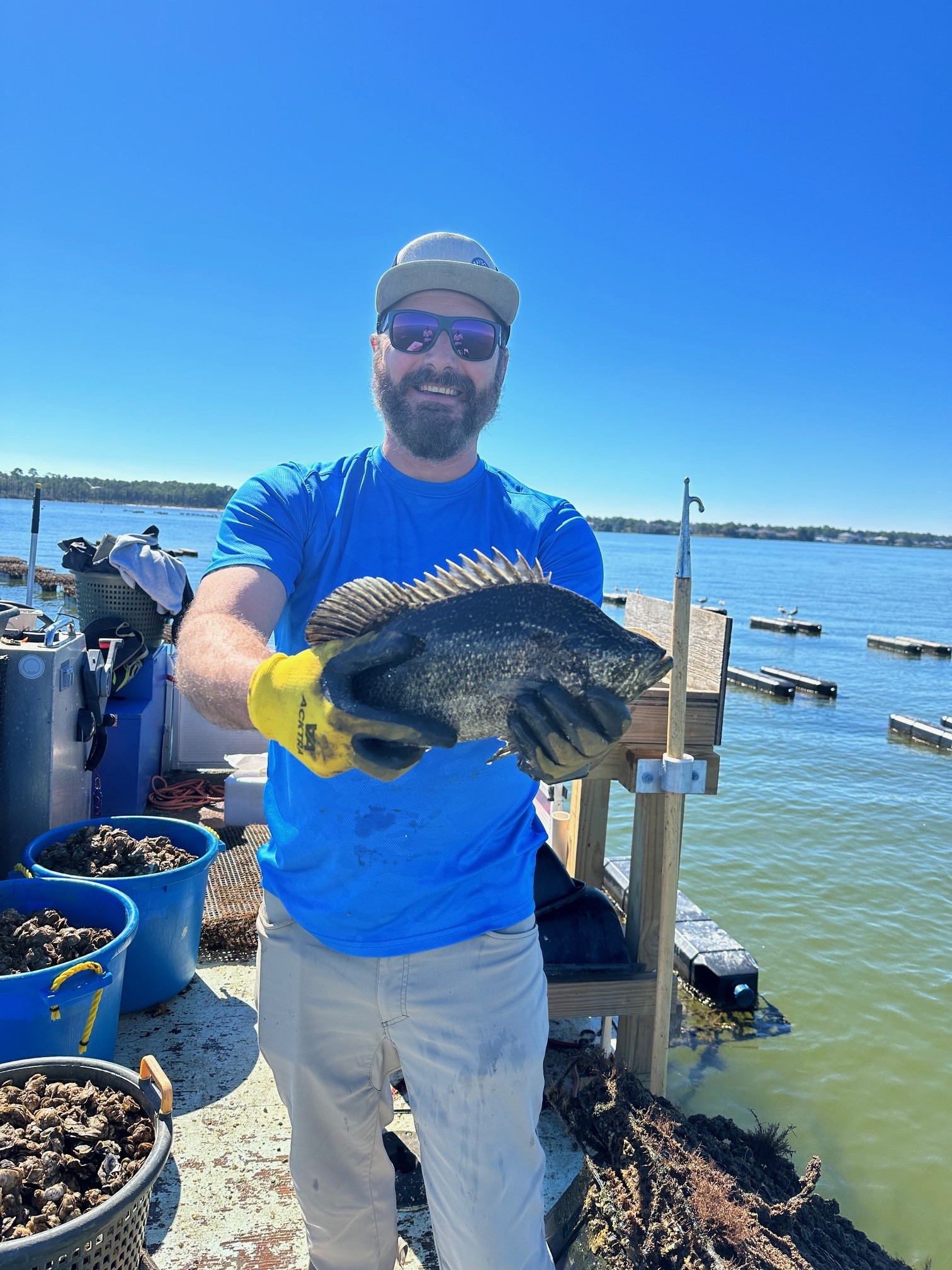You might have seen a floating oyster farm while driving over Garcon Point Bridge or along Scenic Highway. Many people know them for the beautiful, tasty oysters they produce, but those farms have a major ecological benefit that many aren’t aware of. First, the oysters in those cages act as a very efficient water filter, filtering upwards of 30 gallons per day. The floating farms also act as an oasis for other marine creatures, from crustaceans to finfish, and can help increase the biodiversity in the area. Oysters are also great at sequestering carbon into their shells. Today, we will go over these ecological benefits and proper etiquette when maneuvering around the farms to enjoy some of the ecological benefits of the oyster farm.

Besides being tasty, oysters are very well known for their ability to filter massive amounts of water in a single day. Research has shown rates of up to 50 gallons per day in a laboratory setting, but they filter upwards of 30 gallons per day in the wild. With most oyster farms in the area having more than 500,000 oysters on their farm, that’s more than 15,000,000 gallons of water per day per farm! Oysters can filter out any excess sediments from the water, forming them into small packets and depositing the sediment on the bottom of the bay, keeping the sediments from being re-suspended. This is very beneficial to any bay or estuary as eutrophication (More Here on Eutrophication) has been an issue in almost every bay in the southern United States.
Another benefit to oyster farms is that it is a floating oasis for all types of marine creatures. Blue crabs and stone crabs are a common threat to oysters, and they love to congregate around oyster farms waiting for an easy meal from a dropped oyster or oyster spat on cages. Common bay fish, like the Spotted Seatrout, Sheepshead, and Red Drum, have been known to hang out under the cages consuming smaller finfish and crabs, but some uncommon fish like Tripletail and Florida Pompano also patrol the cages looking for a meal. Because of its ability to hold all types of fish, fishermen love to fish around the oyster farms. Fishing around oyster farms is allowed, but most farmers want the boats to stay on the boundary of the farm and not inside of it. This is due to there being lines under the surface of the water that could potentially damage any lower unit and can cut free a line of cages. Also, it is against state law to be within the boundary of the farm if you are not an authorized harvester of that lease, and I have personally seen FWC enforce those rules. As a seasoned oyster farmer once told me “We know our farm holds fish and it is okay for them to fish the farm, heck put out some blue crab traps around it, but do not mess with the cages and stay outside of the boundary and we can all live in harmony.”

Last but not least is the ability of oysters to sequester carbon and excess nitrogen into their shells and pseudofaeces (aka bio-deposits). Carbon and nitrogen sequestration is a crucial service provided by oysters that helps battle global climate change. Just as they do with excess sediments, they deposit excess carbon and nitrogen into bio-deposits that accumulate on the bottom, keeping them from being re-suspended into the waters. Oyster reefs are currently on the decline around the world, and their decline has “resulted in a forfeiture of several ecosystem services” including carbon and nitrogen sequestration and water filtration. (More Here on Carbon Sequestration)
While oysters might be tasty, we have learned about some of the ecological services oysters provide to an estuarine environment. From water filtration to increasing biodiversity to carbon/nitrogen sequestration, oysters are a major benefit to any estuary and can help fight climate change and eutrophication. Next time you see an oyster farm or reef, give oysters (and farmers) a little appreciation for their hard work in helping make the world a healthier place!
- Aquaculture 101: Aquaculture in The USA - May 12, 2025
- Aquaculture 101: The History of Aquaculture - April 25, 2025
- A Northwest Florida Winter Wonderland - January 31, 2025
